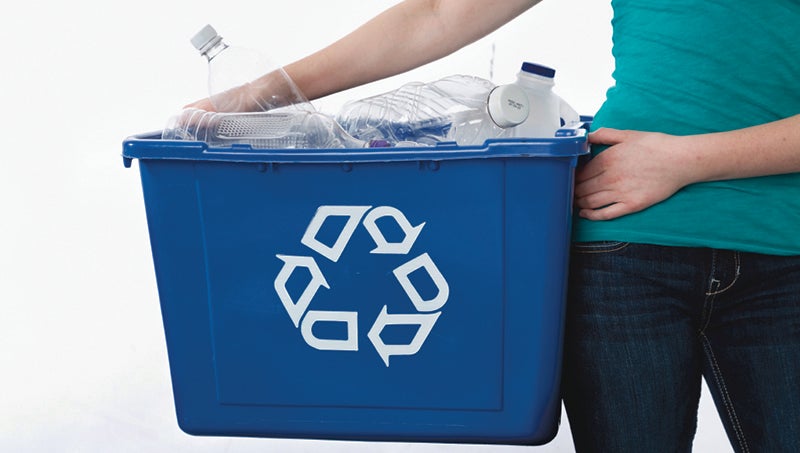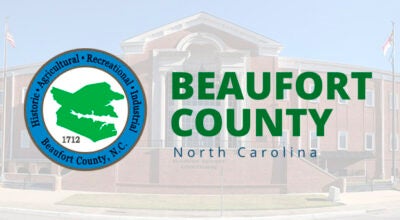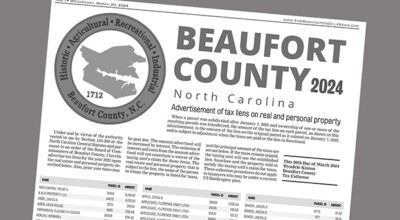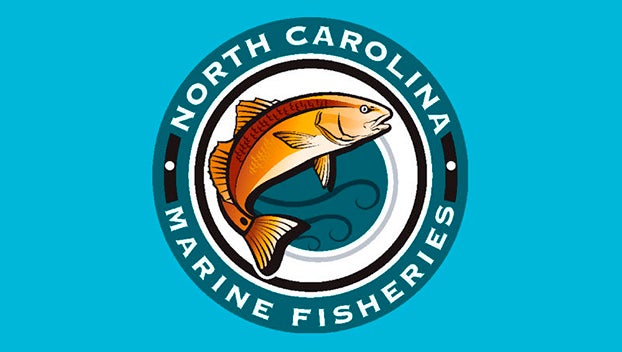County recycling program at risk with Monday vote
Published 7:32 pm Thursday, July 2, 2020
|
Getting your Trinity Audio player ready...
|
Increased cost and lower commodity prices could bring recycling in Beaufort County to an end on Monday.
The Beaufort County Board of Commissioners will vote at Monday’s regularly scheduled meeting to either continue recycling at a noticeably higher rate or dispose of potentially recycled materials the same way in which all other waste collected at county sanitary sites is disposed.
The vote comes after a recent decision by the Beaufort County Solid Waste Committee to recommend the county discontinue the recycling service offered by Republic Services, which is contracted to dispose of the county trash at its 10 collection sites. Commissioners Stan Deatherage, John Rebholz and Frankie Waters make up that committee.
“The first part of that is that they have increased their tonnage cost for recycling. Now it will cost us more money per ton than it does for regular disposal,” said Beaufort County Manager Brian Alligood. “So the board’s going to have a discussion about that.”
Republic Services has previously collected the county’s commingled recycling at a rate of $66 per ton. An annual average of 230 tons has been collected at a processing cost of $15,180 per year.
The cost to process recycling will rise to $110 per ton, which adds up to an increase in cost of $10,120, for a total of $25,300 per year. However, if the county votes to discontinue its recycling program, disposal of the same 230 tons will cost $2,465.60 per year.
The cost is being passed along to the county by Republic Services, but it is the company that processes the recycling delivered by Republic that is raising its cost. East Carolina Vocation Services, which has a materials recovery facility in Greenville, is raising its recycling processing fee to $100 per ton, according to a letter sent from ECVC Recycling Operation Manager John Coward to Matthew East, operations manager with Republic Services.
“Our labor and equipment costs for sorting and baling the commingled recyclables are much more than the value of the plastics, glass, metals, newspaper and paper we recover. For the past three years, ECVC has been able to keep the tipping fees lower than most areas, but due to the increased cost and lower commodity prices, we regret we will have to increase our fee,” the letter reads.
The letter also points out that local governments can reduce their recycling cost by not sending items with no value, which now include magazines, hardback books, glass and most plastics.
“It just tells you what a big player the world market is in recycling,” Alligood said, adding that it was China’s decision to stop accepting U.S. recycling that’s led to the devaluation of recyclable materials. “When that market collapses all of sudden, what do you do?”
Alligood said commissioners will weigh the cost versus the benefit of recycling at Monday’s meeting.
“This is going to cost us about $10,000 a year. From an administrative perspective, you’re paying more money for that than regular waste,” Alligood said. “From the public-policy perspective, you’re saying ‘Is it worth paying more money?’ Because recycling is good public policy.”





